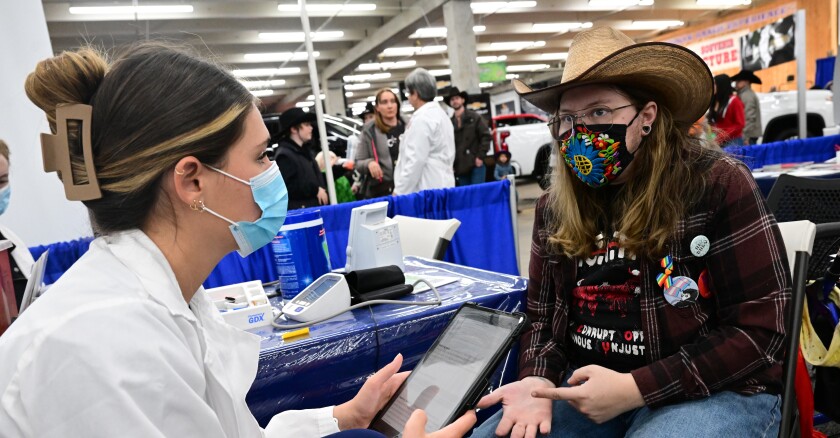Two House Democrats introduced HB23-1209 in mid-February in the latest step in policymakers’ ongoing journey to expand health care access in Colorado. The bill would direct the state’s School of Public Health to analyze “model legislation” to implement a publicly funded but privately delivered health system here — meaning state-funded care provided by existing hospitals and providers. The study would examine the costs of a system under which copays and deductibles are prohibited while access and benefits are prioritized.
Fort Collins Democrat Rep. Andy Boesenecker, who with Rep. Karen McCormick is sponsoring the measure, said he’s supportive of a single-payer system. He and other Democratic lawmakers said they wanted to see the results of a study here to inform policymaking into the future.
The study bill, which would also establish a task force to assist in the analysis, would allocate more than $277,000 in state money to the University of Colorado to fund the effort. It wouldn’t wouldn’t require any legislation be considered or even introduced by future lawmakers. But it would provide more data, legislators said, several years after voters rejected launching a taxpayer-funded universal system here.
“If it comes back with high benefit, it’s something we can take action on,” said Democratic Rep. Dafna Michaelson Jenet, who chairs the House’s Public and Behavioral Health and Human Services committee. “If it’s a really bad idea, we can go back to the drawing board.”
Supporters, like the Colorado Foundation for Universal Health Care, say the study can show how — or if — a single-payer system can improve access to care while cutting costs. But opponents, like the the insurer trade group America’s Health Insurance Plans, say the study is a waste of time, particularly three years after a similar study was undertaken, also by the public health school.
That 2021 financial report found that a universal system “could yield significant healthcare savings, particularly if pricing regulations are put in place to control cost growth in the future.” Boesenecker said the study he wants would build upon that finding and provide more insight into how a system could work here.
But he also noted that, in 2016, Colorado voters resoundingly rejected a ballot measure that would’ve instituted a universal health system. That program — ColoradoCare — was projected to cost roughly $36 billion a year, and it would’ve largely been funded via a 10 percent payroll tax.
Boesenecker wouldn’t say if he viewed the bill as a launch pad for future legislation on single-payer policies.
“I think what (the bill is) talking about would be a monumental shift in how we deliver health care in our state,” he said, “so obviously being thoughtful and not rushing is important.”
The bill comes as the state continues to roll out the Colorado Option and as legislators here consider a slew of other health proposals. Gov. Jared Polis has repeatedly hammered upon his desire to save Coloradans money on health care, and he supported universal health care during his 2018 campaign. Asked about the study bill during a press conference for other health bills last week, Polis didn’t directly say whether he supported the bill but that he is “generally supportive of looking at new and different ideas.”
Colorado is far from the only state to consider whether to launch its own single-payer system. A 2020 study published in the University of Pennsylvania Law Review found that legislators in 21 states have filed 66 single-payer bills between 2010 — when the Affordable Care Act passed — and 2019. A bill to enact a universal system in California died in late January 2022 amid pressure from business groups and concerns about how to fund the program, according to NPR. Vermont abandoned its trailblazing attempt in 2014 for similar reasons.
©2023 MediaNews Group, Inc. Distributed by Tribune Content Agency, LLC.
Related Articles










